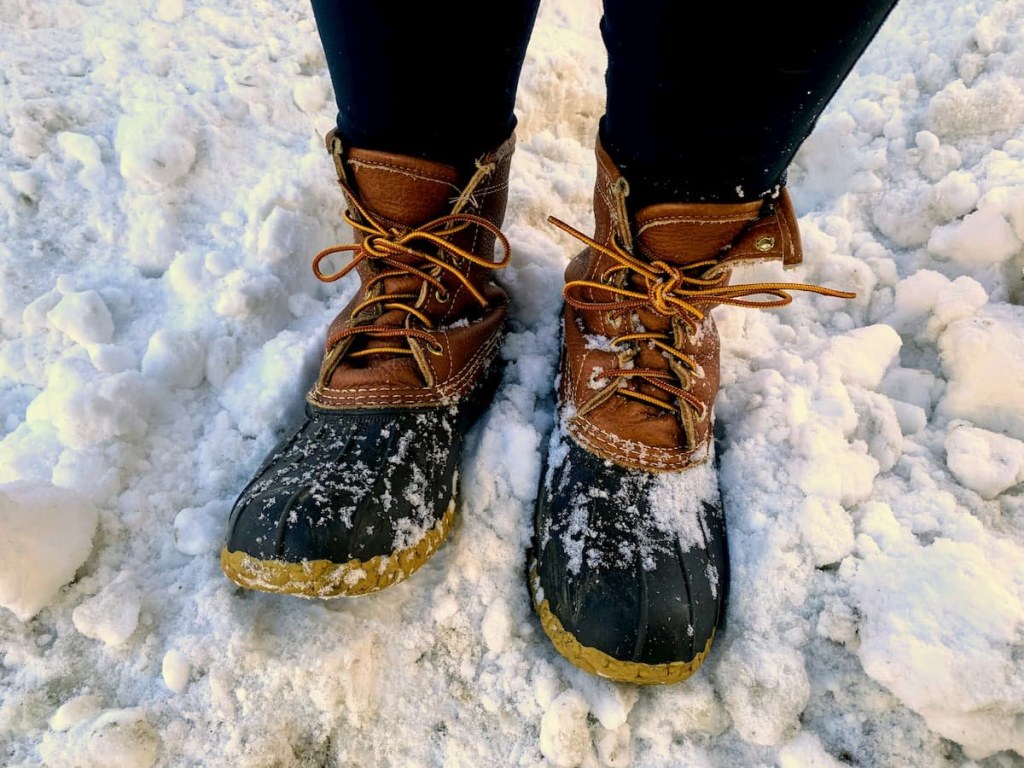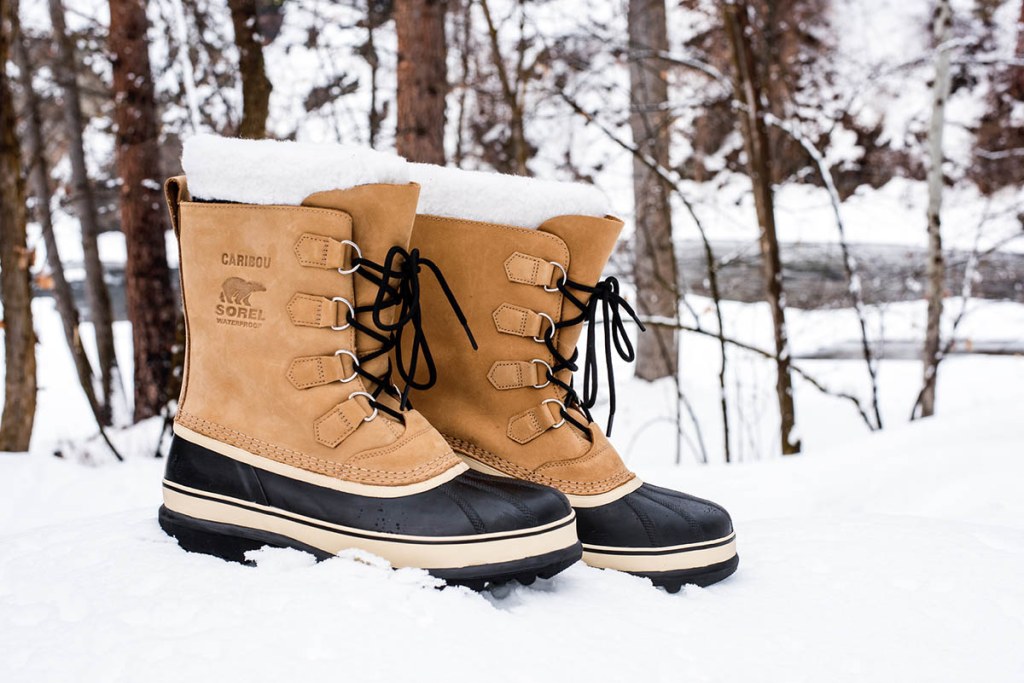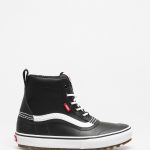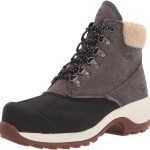Discover The Best Snow Gear: Are Waterproof Boots Good For Snow?
Are Waterproof Boots Good for Snow?
Welcome, Boots Enthusiast! Today, we will delve into the topic of whether waterproof boots are good for snow. As the winter season approaches, it’s essential to equip ourselves with the right footwear to tackle the snow-covered terrain effectively. In this article, we will explore the advantages, disadvantages, and other aspects of waterproof boots in snowy conditions. So, let’s get started and find out if these boots are the right choice for your winter adventures!
3 Picture Gallery: Discover The Best Snow Gear: Are Waterproof Boots Good For Snow?
Introduction
Snowy landscapes can be both beautiful and treacherous. It’s crucial to have the appropriate gear, especially when it comes to footwear. Waterproof boots have gained popularity as a reliable option for snowy conditions. These boots are designed to keep your feet dry and warm, providing protection from the cold and wet snow. However, it’s important to understand their features and limitations before making a purchasing decision.

Image Source: squarespace.com
In this article, we will provide an in-depth analysis of waterproof boots for snow, discussing their benefits, suitable users, ideal timing, recommended locations, reasons behind their effectiveness, and the best practices for wearing and maintaining them. By the end, you’ll have a comprehensive understanding of whether waterproof boots are the right choice for your snowy escapades.
So, let’s explore the various aspects of waterproof boots in relation to snow and gain insights on how they can enhance your winter experiences.
What Are Waterproof Boots?

Image Source: switchbacktravel.com
Waterproof boots are footwear specifically designed to prevent water from entering the interior of the boot. They are made using advanced materials and construction techniques that create a barrier, keeping your feet dry even in wet conditions. These boots are typically crafted with waterproof membranes, sealed seams, and water-resistant outer layers, providing effective protection against snow, rain, and other forms of moisture.
Waterproof boots are commonly used in various outdoor activities, including hiking, trekking, and, of course, navigating through snowy terrains. They are available in different styles, ranging from ankle-length boots to knee-high options, ensuring there’s a suitable pair for every individual and activity.

Image Source: switchbacktravel.com
Now that we understand the basic concept of waterproof boots, let’s explore who can benefit from using them in snowy environments.
Who Can Benefit from Waterproof Boots in Snowy Environments?
Waterproof boots are suitable for a wide range of individuals who venture into snowy environments. Whether you’re an outdoor enthusiast, a winter sports enthusiast, or simply someone who needs to navigate snowy streets, these boots can offer you significant advantages.
Outdoor enthusiasts, such as hikers, mountaineers, and campers, can benefit greatly from using waterproof boots in snowy conditions. These boots provide the necessary protection and insulation to keep your feet warm and dry, ensuring a comfortable and safe experience in the wilderness.
Winter sports enthusiasts, including skiers, snowboarders, and ice climbers, also rely on waterproof boots to withstand the cold and wet conditions associated with their activities. The waterproof feature keeps their feet dry, preventing discomfort and potential frostbite.
Moreover, individuals living in regions with heavy snowfalls can greatly benefit from wearing waterproof boots. These boots allow them to navigate through snow-covered streets and sidewalks without worrying about wet feet and discomfort.
It’s important to note that waterproof boots are not limited to these specific groups. Anyone who desires dry and warm feet while traversing snowy landscapes can find value in owning a pair of these boots.
Now that we’ve identified the target users, let’s move on to discussing the best time to wear waterproof boots in snowy conditions.
When Should You Wear Waterproof Boots in Snowy Conditions?
The timing of wearing waterproof boots in snowy conditions depends on various factors, including the severity of the snowfall, the length of your outdoor activities, and your personal preferences. However, there are some general guidelines that can help you determine the best time to don these boots.
If you’re planning a day of outdoor activities in the snow, it’s advisable to wear waterproof boots from the start. This ensures that your feet remain dry and comfortable throughout the day, even if the snow melts or you encounter wet terrain. Additionally, if you anticipate prolonged exposure to snow or if the weather forecast predicts heavy snowfall, waterproof boots are a must-have.
It’s crucial to remember that prevention is key when it comes to keeping your feet warm and dry in snowy conditions. Wearing waterproof boots as a precautionary measure eliminates the risk of moisture seeping into your footwear and causing discomfort or even frostbite.
Now that we’ve discussed the timing, let’s move on to the next aspect of our exploration – the best locations to wear waterproof boots in snowy conditions.
Where Are Waterproof Boots Good for Snow?
Waterproof boots are suitable for various snowy locations, ranging from mountainous terrains to urban environments. Let’s explore some of these locations:
1. Snowy Mountains: If you’re planning a winter trek or mountaineering expedition in the snow-capped mountains, waterproof boots are essential. These boots provide the necessary traction and insulation to navigate through challenging terrains.
2. Ski Resorts: Ski resorts are popular destinations for winter sports enthusiasts. Whether you’re skiing, snowboarding, or simply enjoying a walk around the resort, waterproof boots ensure dry and comfortable feet throughout your time in the snow.
3. Snowy Trails: Hiking or walking along snowy trails requires sturdy and reliable footwear. Waterproof boots offer the necessary protection and grip, allowing you to explore nature’s winter wonderland without worrying about wet feet.
4. Urban Areas: Even in urban areas, waterproof boots can be highly beneficial during winter. They enable you to navigate through snow-covered sidewalks and streets without worrying about moisture seeping into your shoes.
These are just a few examples of the ideal locations to wear waterproof boots in snowy conditions. The versatility of these boots allows you to explore and enjoy various winter environments without compromising on comfort or safety.
Now that we’ve discussed the suitable locations, let’s move on to exploring the reasons behind the effectiveness of waterproof boots in snowy conditions.
Why Are Waterproof Boots Effective in Snow?
Waterproof boots are effective in snowy conditions due to their unique features and construction. Let’s explore some key reasons behind their effectiveness:
1. Water Resistance: The primary function of waterproof boots is to keep your feet dry. The water-resistant materials and constructions prevent moisture from penetrating the boots, ensuring your feet remain dry even in wet snow.
2. Insulation: In addition to water resistance, waterproof boots offer insulation to keep your feet warm in cold temperatures. The insulation materials and design retain heat, protecting your feet from the icy chill.
3. Traction: Snowy terrains can be slippery and pose a risk of falls or injuries. Waterproof boots often feature specialized outsoles with deep treads or grip-enhancing patterns, providing excellent traction on snow and ice.
4. Durability: Waterproof boots are built to withstand rigorous outdoor activities. They are designed to be sturdy and durable, ensuring they can handle the demands of snowy conditions without compromising on performance.
5. Versatility: Waterproof boots are versatile, suitable for various winter activities and environments. Whether you’re engaging in winter sports or simply navigating through snowy streets, these boots offer the necessary protection and comfort.
The combination of these factors makes waterproof boots a reliable choice for individuals seeking optimal performance and comfort in snowy conditions.
Now that we understand the reasons behind their effectiveness, let’s move on to discuss the advantages and disadvantages of waterproof boots in snowy conditions.
Advantages and Disadvantages of Waterproof Boots for Snow
Like any other product, waterproof boots for snow come with their own set of advantages and disadvantages. Let’s explore them in detail:
Advantages:
1. Dry and Warm Feet: The primary advantage of waterproof boots is that they keep your feet dry and warm in snowy conditions. This prevents discomfort, frostbite, and other cold-related issues.
2. Protection from Moisture: Waterproof boots create a barrier against snow, slush, and other forms of moisture, ensuring your feet stay dry even in wet environments.
3. Increased Traction: The specialized outsoles of waterproof boots provide enhanced traction on snow and ice, reducing the risk of slips and falls.
4. Versatility: Waterproof boots are suitable for various winter activities, including hiking, skiing, and everyday use in snowy urban areas.
5. Durability: These boots are designed to withstand harsh weather conditions and rugged terrains, offering long-lasting performance.
Disadvantages:
1. Limited Breathability: Due to their waterproof nature, these boots may have limited breathability, causing your feet to sweat or feel clammy after prolonged use.
2. Bulky and Heavy: Some waterproof boots can be bulkier and heavier compared to regular boots, which may affect agility and comfort for certain activities.
3. Higher Price Tag: Quality waterproof boots often come with a higher price tag compared to non-waterproof alternatives. However, the investment is justified by their performance and durability.
4. Maintenance Requirements: Waterproof boots may require specific care and maintenance to preserve their water-resistant properties and extend their lifespan.
Understanding the advantages and disadvantages of waterproof boots can help you make an informed decision based on your specific needs and preferences.
Now, let’s address some frequently asked questions about waterproof boots for snow.
Frequently Asked Questions (FAQs)
1. Are waterproof boots suitable for extremely cold temperatures?
Yes, waterproof boots are suitable for extremely cold temperatures. Their insulation properties help keep your feet warm, protecting them from the cold.
2. Can I wear waterproof boots in non-snowy conditions?
Yes, you can wear waterproof boots in non-snowy conditions as well. They offer water resistance and durability, making them suitable for various outdoor activities.
3. How do I maintain the water-resistance of waterproof boots?
To maintain the water-resistance of waterproof boots, it’s important to follow the manufacturer’s instructions regarding cleaning and applying waterproofing agents.
4. Can I use waterproof boots for winter hiking?
Yes, waterproof boots are an excellent choice for winter hiking. They provide the necessary protection and insulation to keep your feet comfortable during your outdoor adventures.
5. Are waterproof boots suitable for all-day wear?
Yes, waterproof boots can be worn all day. However, it’s important to choose a pair that offers sufficient comfort and support for extended use.
Now that we’ve addressed some common questions, let’s move on to the conclusion of our article.
Conclusion
In conclusion, waterproof boots are indeed good for snow. They offer numerous advantages, including keeping your feet dry, providing insulation, enhancing traction, and offering versatility for various winter activities. Whether you’re hiking, skiing, or navigating snowy urban streets, waterproof boots can greatly enhance your comfort, performance, and safety.
However, it’s important to consider the disadvantages, such as limited breathability and potentially higher costs. Additionally, proper maintenance is crucial to ensure the longevity and effectiveness of waterproof boots.
If you’re planning to venture into snowy environments, investing in a pair of high-quality waterproof boots is highly recommended. Your feet will thank you as you enjoy the wonders of winter while staying warm and dry.
So, what are you waiting for? Embrace the snow with confidence and embark on your winter adventures with the right pair of waterproof boots!
Final Remarks
Disclaimer: The information provided in this article is for general informational purposes only and should not be considered as professional advice. Always consult with a qualified expert or retailer before making any purchasing decisions or embarking on outdoor activities in snowy conditions.
Now, go forth and conquer the snowy landscapes with your trusty waterproof boots, Boots Enthusiast! Stay warm, stay safe, and enjoy the magic of winter!
This post topic: Boots


